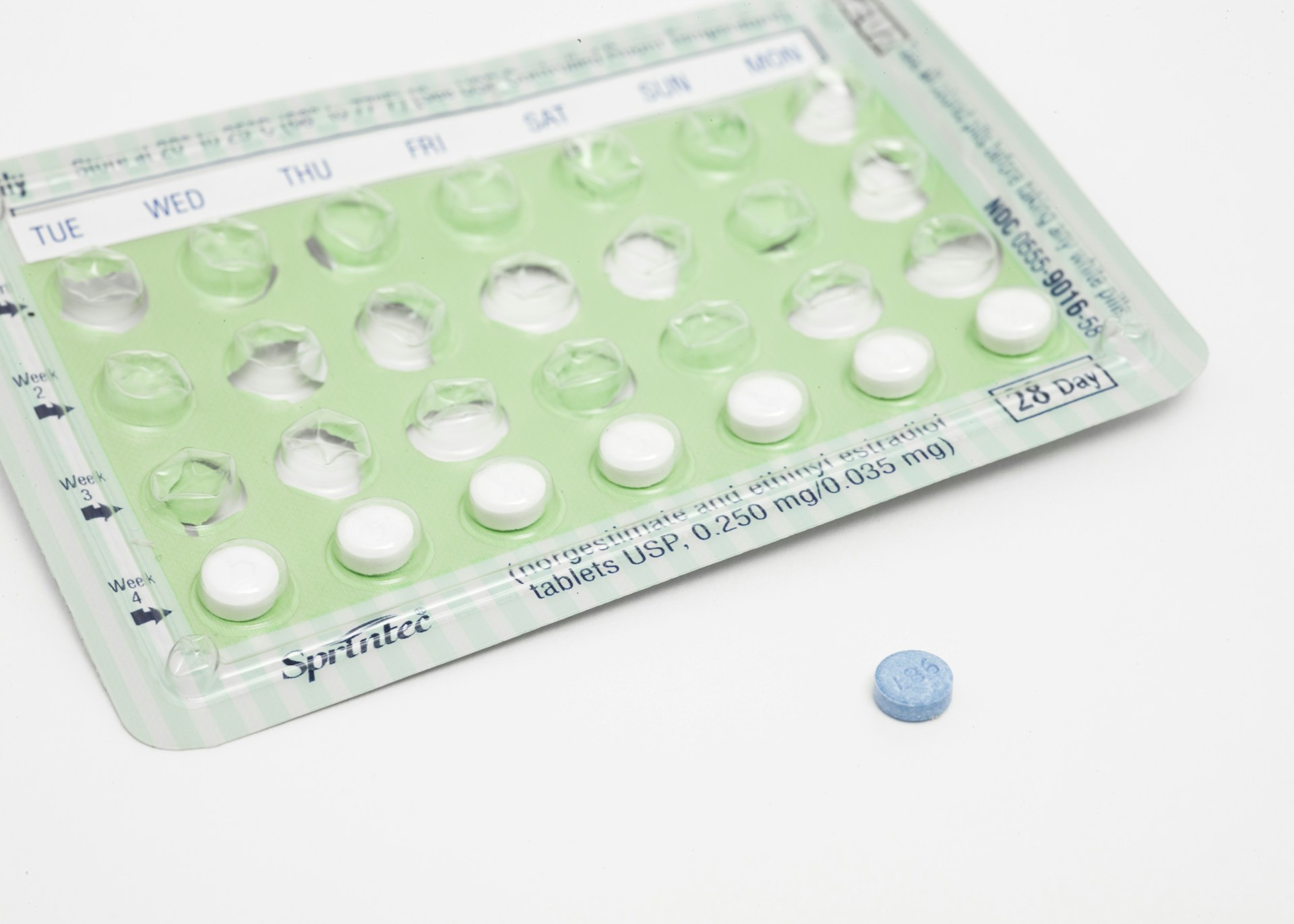Depression Might Originate in Your Gut, Ways to Heal
Did you know that gut health can be an important tool in fighting the a href=”https://www.theepochtimes.com/t-depression”>depression? Researchers are studying the gut-brain link and how it can be harnessed to improve mental health.
The Gut-Brain Connection
There’s a name for this connection: the gut-brain axis.
Refer to the following chapter “Translational Bioinformatics and Systems Biology for Understanding Inflammation,” The a href=”https://www.sciencedirect.com/topics/immunology-and-microbiology/gut-brain-axis”>gut-brain Axioms It is a bidirectional communication network between the central nervous (CNS), and the gastrointestinal tract (GI) that is also known as the Enteric nervous System Or “second brain.” It also makes up the largest portion of the ahref=”https://www.ncbi.nlm.nih.gov/books/NBK539845/#:~:text=The%20autonomic%20nervous%20system%20is,sympathetic%2C%20parasympathetic%2C%20and%20enteric.”>autonomic Nervous system. Its circuitry allows the coordination of gastrointestinal functions. The brain plays an essential role maintaining equilibrium within the body.
Jeremy Appleton is a naturopathic doctor who has studied the gut-brain axis. He says that our gut microbiome, and its relationship with our brain, have a significant impact on all parts of our bodies.
“Every system in the body seems to be influenced by the quality of our microbiome and also the quality of that interface where those bacteria reside in us,” He explains. “It’s definitely a symbiotic relationship that we have with them.”
The gut microbiome can alter the function of the enteric nervous system by activating stress pathways in the brain (“bottom-up”). You can reverse the process.“top-down”).
Stress and depression can disrupt the gut’s microbiome through stress hormones, inflammation, and changes within the autonomic nervous system—which regulates involuntary processes in the body such as heart rate, blood pressure, respiration, and digestion (top-down). These changes can cause the gut bacteria to produce substances that can impact our eating behavior, mood, and digestion.
Alternately, gut bacteria may increase stress response and increase the risk for depression (bottom up).
As mentioned in the previous chapter, animal studies have revealed that the gut microbiome has been implicated in the development of mood, pain and cognition. It’s an interesting relationship that may provide important clues into various neuropsychiatric diseases including schizophrenia, autism, and affective disorders (such as depression and bipolar disorder).
A group of chemicals known as ahref=” is also produced by our gut microbiome.https://www.ncbi.nlm.nih.gov/pmc/articles/PMC6940411/”>short-chain Fatty acids When they are able to break down fermentable, resistant starcheshttps://www.theepochtimes.com/t-prebiotics”>prebiotics), and some dairy products.
Short-chain fatty acids are believed to play a major role in gut health and in regulating neuro-immunoendocrine functions. The ahref=”https://fhs.mcmaster.ca/forsythe-lab/neuro_immuno_endocrine_super_system.html”>neuro-immunoendocrine Network is comprised of the nervous system, endocrine system, and immune system. These systems interact and use neurotransmitters (hormones and neurotransmitters), cytokines (proteins which can stimulate or slow down the immune system) to maintain balance.
These acids may also play an important role in the a href=”https://www.ncbi.nlm.nih.gov/pmc/articles/PMC7005631/#:~:text=SCFAs%20can%20cross%20the%20blood,expression%20of%20tight%20junction%20proteins.”>microbiota-gut-brain Communication. Studies have linked short-chain fatty acid composition changes to a>=”https://www.ncbi.nlm.nih.gov/pmc/articles/PMC8428857/”>depressive Symptoms and GI symptoms. They could also have an effect on the brain’s functioning and could be used in the future to treat brain disorders.
A short-chain of fatty acids can also be used to strengthen the integrity and permeability of the ahref=”https://www.cancer.gov/publications/dictionaries/cancer-terms/def/blood-brain-barrier”>blood-brain Barrier Increase the production and protection of new neurons to reduce inflammation in the brain.https://www.frontiersin.org/articles/10.3389/fendo.2020.00025/full”>contribute The synthesis of serotoninImprove neuron function
Appleton states that all this has an effect on our behavior.
“There are all kinds of implications. Not just for mood, but also for neurologic conditions like autism and serotonin metabolism, and how that is all affected with major depression,” He explains.
Depression and Dysbiosis
Dysbiosis occurs when there is an imbalance in the body’s normal gut microbiome. This happens for a variety of reasons, including infection, diet, exposure to antibiotics, exercise level, and sleep patterns. It can cause inflammation and dysregulation in the immune system.
Leaky gut It can also affect the microbiome of your gut. This occurs when the tight barrier in our intestines becomes cracked or broken and allows partially digested foods and toxins into other tissues.
Numerous Studies have shown A link exists between depression and the destruction of the microbiome in the gut. Research has shown that the microbiome of the gut is associated with serotonin production and tryptophan. Serotonin Is a chemical This transmits messages from the brain to the body. It is involved with mood, sleep, cognition and digestion. Depression is associated with low levels of serotonin.
Ninety-five % of the serotonin The brain is in the body, but not in the body. “it’s from the gut,” Appleton.
It’s also been suspected that the neurotransmitter GABA Microbiome can affect our microbiome. GABA blocks the signals between nerve cells in both the brain (spinal cord) and the brain (brain). GABA levels that are lower may lead to the development of ahref=”https://my.clevelandclinic.org/health/articles/22857-gamma-aminobutyric-acid-gaba”>depression Mood disorders.
One study was involved Transfer of fecal matter (from depressed humans to microbe-deficient animals) can lead to depressive behavior in rats.
Another Study published December 20, 222. Nature Communications compared 1,054 people with depression to a group of 1,539. Researchers found a link between 13 types bacteria and depression symptoms in the study. The synthesis of neurotransmitters is a key function of each bacterium, which suggests that depression may be caused by the microbiome.
Heal your gut, heal your mind
It is important to heal your gut and your brain by using interventions that target both the gut-brain connection.
According to Appleton, research into the gut-brain axis has exploded in the last 15–20 years; unfortunately, the “lessons learned” They are not used by the majority of practitioners.
“In terms of depression, it’s something that we still in mainstream medicine, we just really aren’t looking at when we’re talking about moods,” Appleton. “We’re not looking at the health of their gut—it still hasn’t become intuitive for us.”
Appleton states that doctors should not prescribe drugs or supplements for depression. Instead, they should examine dysbiosis and/or assess for leaky gut syndrome. “as part of the standard operating procedure.”
Appleton says that the best way to treat depression is to use a holistic approach. He says he wouldn’t tell a patient not to take an antidepressant; however, if medication is the only treatment, “you’re going to touch part of the problem, but you’re not going to treat the whole problem,” Appleton explains.
Angelo Pezzote has a doctorate of pharmacy and is a board certified psychiatric pharmacist as well as a clinical mental health counselor. He combines the two professions and works almost like a psychiatrist.
Pezzote can assist prescribers in making medication recommendations. But his primary focus is not on the drugs but on how to best use them. “nutritional psychiatry”—he works with clients to replenish and enhance the gut microbiome through methods such as lifestyle changes, stress reduction, exercise, and healthy eating.
Pezzote states that, while some people may need medication, others may not. “one and only answer” for depression.
“I think for a lot of patients, they’re just used to ‘here, take this pill and you’re going to feel happy’ and that’s just not the way reality is. A lot of people on their antidepressants still feel sad and they need more than just a pill.”
Appleton is in agreement.
Stress management is an important component in healing the gut. Pezzote believes that stress is a key component to healing the gut. “throws off” Inflammation can cause inflammation in the immune system. This is linked to depression as well as other mood disorders. You can control stress hormones, which influence the gut microbiome, by managing stress.
“It’s really stress that gets people off balance,” says Pezzote.
Moving, meditation, yoga and tai-chi, as well as quality sleep and meaningful social interaction can all help to manage stress.
Eating a plant-rich diet is very important in maintaining a healthy gut microbiome, given that the gut microbiome loves fiber and prebiotics—things we can’t digest.
Prebiotic Foods Include chicory root and garlic, as well as onions, garlic, and leeks.
Pezzote advocates a plant-rich lifestyle that includes low-fat dairy and limiting red meat. He also recommends increasing whole grains, healthy oils, complex carbs, and refined sugar.
Probiotics They can also improve the microbiome of your gut. They It can be found here Probiotic supplements can be found in yogurt, yogurt, kimchi, tempeh and other fermented foods. The U.S. Food and Drug Administration does not regulate probiotic supplements. Therefore, it is important that you choose probiotics that are endorsed by a “quality seal”https://www.researchgate.net/figure/Descriptions-of-organizations-offering-third-party-certification-services-for-probiotics_tbl1_332478434″>third-party Inspector.
Pezzote suggests choosing a “a href=”https://health.clevelandclinic.org/how-to-pick-the-best-probiotic-for-you/”>multi-strain Probiotic For best results, make sure to include Lactobacillus. Talk to your doctor before you begin a probiotic.
Evidence from clinical trials supports this conclusion Probiotics may be able to improve the symptoms of Major Depressive Disorder sufferers. A clinical trial in the Netherlands proved that probiotics can improve symptoms for those suffering from Major Depressive Disorder. “significantly reduced overall cognitive reactivity to sad mood” After taking probiotics for four weeks. These results have been replicated by other studies. This suggests that probiotics might be an important tool for fighting depression.
“If I had MDD or major anxiety disorder, I would be going top down and bottom up. It makes a lot of sense given the bidirectional nature of the gut-brain axis,” Appleton, he said.
Pezzote believes that one intervention is not enough to heal the gut or treat depression.
“It’s like the spokes on a wheel: One spoke doesn’t balance the wheel. It’s all the spokes,” He said. “And we need not just medication, we need a bunch of things to go along with that as necessary in order to have good, healthy, balanced microbiomes.”
The views expressed in this article reflect the opinions of the author, and not necessarily the views of The Epoch Times. Epoch Health encourages professional discussion and friendly debate. These guidelines will help you submit an opinion piece. Please complete our form..
" Conservative News Daily does not always share or support the views and opinions expressed here; they are just those of the writer."






Now loading...